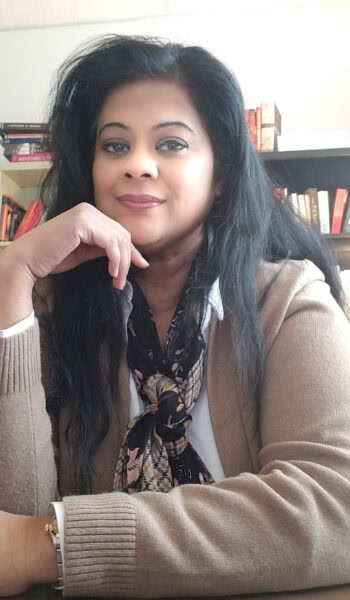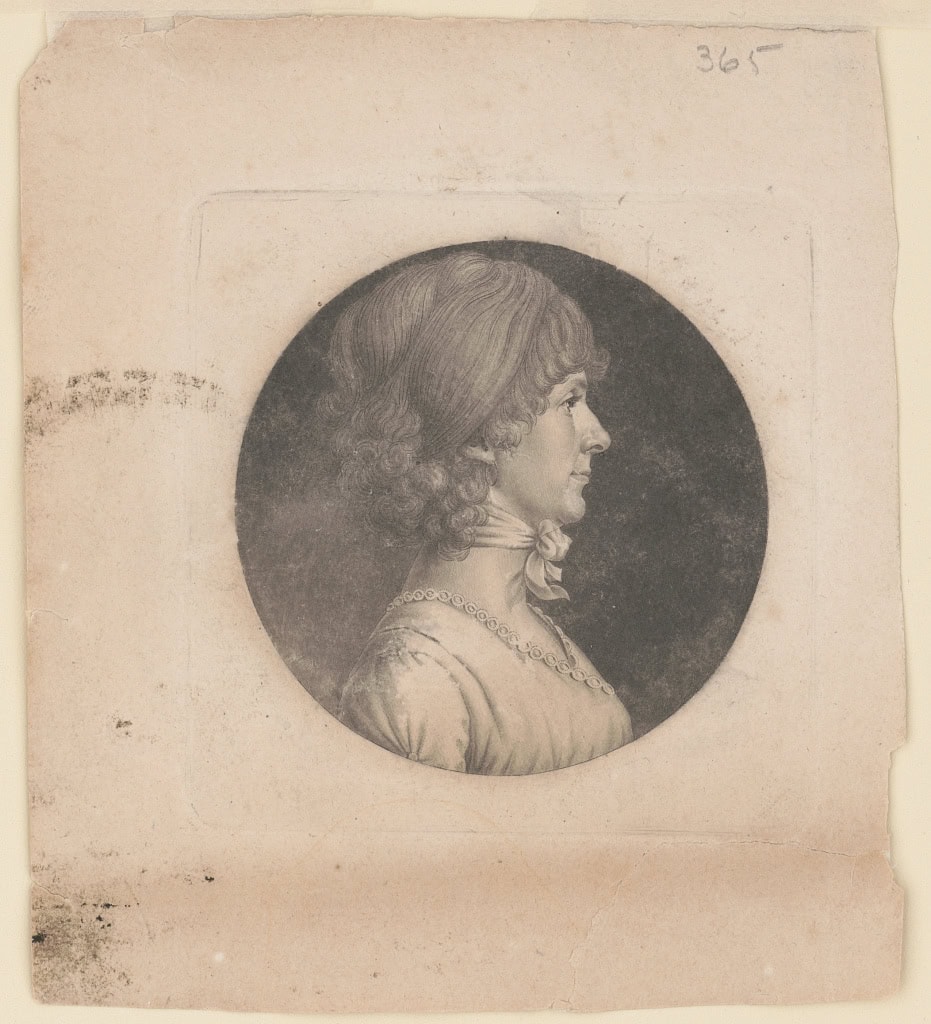Ruma Salhi is a professor of history at Northern Virginia Community College. She lives in Falls Church, Virginia, and has been a member since 1996.
Website: https://blogs.nvcc.edu/rsalhi

Alma maters: BA, UCLA, 1995; MA, University of Chicago, 1996; PhD, University of Chicago, 2005
Fields of interest: ancient, medieval, and Byzantine history, gender studies, medieval Mediterranean world
Describe your career path. What led you to where you are today?
I had always been fascinated with medieval history. As a child I took tales of fairy castles and knights in shining armor very seriously. I was quickly disabused of these romantic notions in college, and instead became fascinated with the narrative historiography of the Middle Ages. The more I learned, the more I wanted to tell people about history. As a professor, I now have a captive audience of students to teach, inspire, and share my love of history.
What do you like the most about where you live and work?
The most striking thing about living in Washington, DC, is the diversity. My students come from numerous backgrounds as well as international countries. In any given day I can hear conversations in Arabic, Spanish, Korean, and Vietnamese. My students represent all income brackets, ages, ethnicities, identities, and politics. It is truly an honor to be a part of such a diverse community and this is what, in all actuality, makes America great.
What projects are you currently working on?
My current project involves creating a comprehensive historical atlas of the premodern period. This project was borne out of my own observations in the classroom that students (indeed, not just students, but the greater population) are relatively weak on geographical aptitude. With the ever-presence of GPS, even the physiological response of orienting one’s self in space is something that is reliant on computer technology. More to the point, I found students were unable to identify Rome on a map, when they had spent three weeks learning about the Roman Empire. The project in its present form will be in hardcopy print, but portions are expected to be available via OER.
Have your interests evolved since graduation? If so, how?
The primary evolution in my interest since graduation is that I am now much more focused on taking complex and deep historical questions and translating them to a broader audience of nonspecialists. A major focus of my teaching is History 101, Western Civilization to 1648. As a gateway course to college, it may well be the only history class a person takes for the rest of his or her life. Thus, I have one semester to engage, motivate, and educate every person who signs up for my class in history the way that I love history.
Is there an article, book, movie, blog etc. that you could recommend to fellow AHA members?
The only New Year’s resolution I have managed to keep over the last three years is to read more fiction. The last book that I read was Paul Beatty, The Sellout. It is satire in its most powerful form. It is funny and a biting commentary on race relations in America. It is the winner of numerous well-deserved awards, whose editorials can praise it more eloquently than I can.
Why is membership in the AHA important to you?
Membership in the AHA has been crucial for me to stay current on scholarship. It seems that trends go in and out every 20 to 30 years in our field. As a college professor, the AHA is indispensable to me.
Do you have a favorite AHA annual meeting anecdote you would like to share?
I am not sure this is my favorite anecdote, but it is sufficiently embarrassing. The first year I went on the job market I had managed to land several interviews at the AHA. I told my father, rest in peace, that I had some interviews and had to go to Boston. He asked me if I would be moving to Boston, so I said that the interviews were in Boston, but the jobs are all over America. Then, after explaining the process to him, he simply responded with, “So you are going to meet strangers in their personal hotel rooms at the Hilton to ask for a job?” Yes, exactly, Dad.
AHA members are involved in all fields of history, with wide-ranging specializations, interests, and areas of employment. To recognize our talented and eclectic membership, Perspectives Daily features a regular AHA Member Spotlight series.
This work is licensed under a Creative Commons Attribution-NonCommercial-NoDerivatives 4.0 International License. Attribution must provide author name, article title, Perspectives on History, date of publication, and a link to this page. This license applies only to the article, not to text or images used here by permission.



